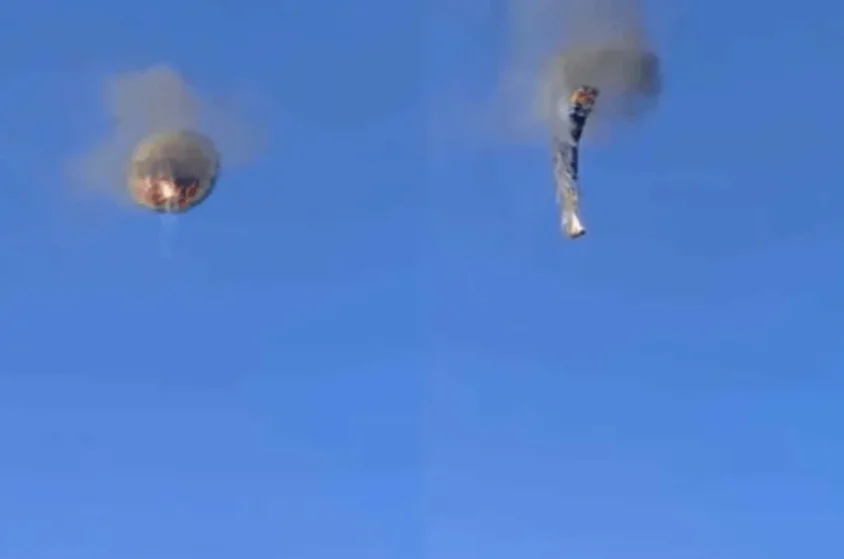
A hot air balloon caught fire and crashed in southern Brazil on Saturday, killing eight of the 21 passengers on board. According to police, the pilot told authorities the fire was started by a blowtorch used to light the balloon’s main flame.
A leisure flight ended in disaster when a hot air balloon caught fire mid-air and crashed in Brazil, killing 3 and injuring several others. The tragic accident occurred in the early hours over the outskirts of Campinas, São Paulo state — a region known for balloon tourism and scenic sunrise flights.
Eyewitnesses described a horrifying scene:
“We saw flames coming from the balloon… it was falling fast. People were screaming.”
What Caused the Fire?
Brazilian aviation authorities (ANAC) are still investigating, but initial reports suggest several possible causes:
1. Fuel System Malfunction
The balloon used propane burners to heat the air. Investigators believe a valve leak or tank failure could have released flammable gas that ignited during flight.
2. Contact With Power Lines
The balloon may have descended too low, striking high-voltage power lines, which can instantly ignite the balloon’s nylon fabric and basket.
3. Use of Unlicensed Equipment
Some Brazilian balloon operators have been flagged in the past for operating without proper certification or using DIY balloon systems, particularly during holiday festivals.
Casualties and Response
- Fatalities: 8 (including the pilot)
- Injured: 13 passengers (2 in critical condition)
- Emergency Response: Firefighters and paramedics reached the crash site within minutes. Survivors were rushed to a nearby trauma center.
Ballooning in Brazil: A Legal Grey Area?
While hot air ballooning is legal and often regulated in Brazil, enforcement varies widely. Illegal flights—often launched without permits or flight plans—pose growing dangers, especially near urban zones.
How to Stay Safe When Ballooning
If you’re planning a balloon ride in Brazil or elsewhere:
- Choose licensed tour operators
- Ask about safety certifications and insurance
- Avoid flights in windy or storm-prone conditions
- Stay clear of urban power lines and populated zones
This tragic hot air balloon accident highlights the need for stricter safety enforcement, operator training, and public awareness in Brazil’s tourism sector. What should be a breathtaking adventure should never turn into a life-threatening risk.
Let’s hope this tragedy prompts policy reforms—and more importantly, prevention.
